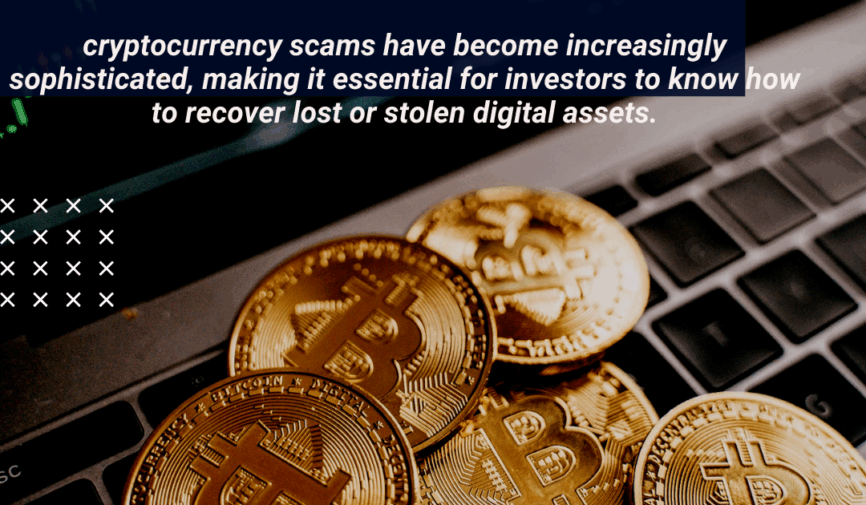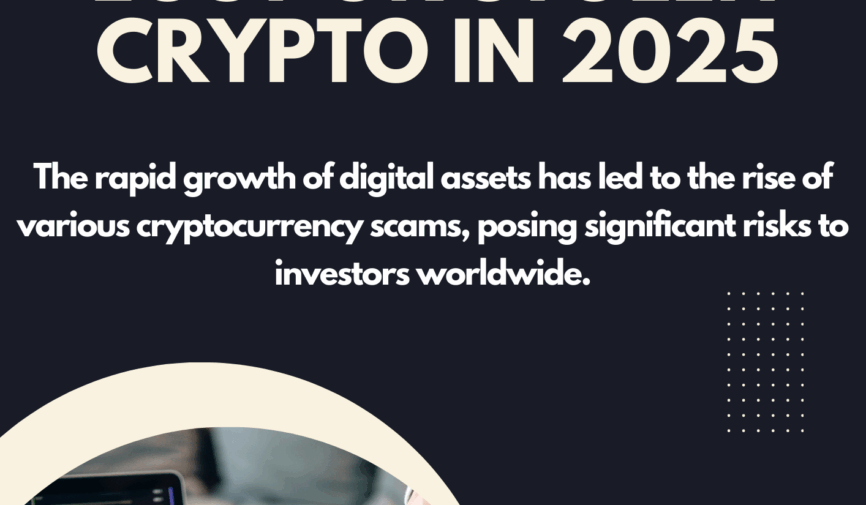Have you ever been tempted by a crypto investment that promised quick returns?
Have You Ever Been Tempted by a Crypto Investment That Promised Quick Returns? In recent years, crypto investment has skyrocketed in popularity, drawing in millions of investors eager to capitalize on the next big financial opportunity. Bitcoin, Ethereum, and countless altcoins have gained mainstream attention, promising the potential for substantial profits. However, with rapid growth […]
Protect Your Digital Wealth with Comprehensive Cryptocurrency Scam Recovery
Protect Your Digital Wealth with Comprehensive Cryptocurrency Scam Recovery The rise of cryptocurrency has opened up unparalleled opportunities for individuals to invest, trade, and grow their wealth. However, with these opportunities comes the unfortunate reality of scams targeting unsuspecting investors. Many individuals and businesses have fallen victim to fraudulent schemes, phishing attacks, or malicious platforms, […]
The Ultimate Guide to Choosing Reliable Crypto Recovery Services
The Ultimate Guide to Choosing Reliable Crypto Recovery Services The world of cryptocurrency continues to grow rapidly, with millions of people around the globe investing in digital assets. While the potential for returns is attractive, digital assets also come with risks, particularly when it comes to private keys or losing access to wallets. This is […]
Blockchain Forensics- Master Swift Crypto Recovery
Blockchain Forensics- Master Swift Crypto Recovery Cryptocurrency scams have become a significant concern for investors and traders worldwide. The decentralized nature of blockchain technology, while offering many benefits, also makes it challenging to recover lost or stolen assets. However, forensic analysis of blockchain data has emerged as a powerful tool in tracking and recovering stolen […]
Step-by-Step Guide to Recover Lost or Stolen Cryptocurrency
Step by step Guide to Recover lost or stolen cryptocurrency Cryptocurrency scams have become a significant concern for investors and traders worldwide. The decentralized nature of blockchain technology, while offering many benefits, also makes it challenging to recover lost or stolen crypto assets. However, forensic analysis of blockchain data has emerged as a powerful tool […]
Top 10 Common Cryptocurrency Scams and How to Avoid Them
Top 10 Common Cryptocurrency Scams and How to Avoid Them Top 10 Common Cryptocurrency Scams and How to Avoid Them The rapid growth of digital assets has led to the rise of various cryptocurrency scams, posing significant risks to investors worldwide. As the popularity of cryptocurrencies increases, so do fraudulent schemes designed to exploit unsuspecting […]






